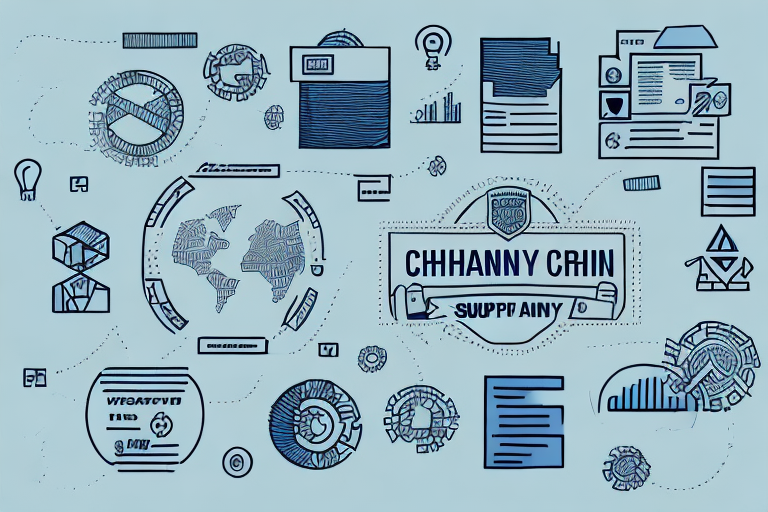Understanding the Benefits of a Customs Bond in Your Supply Chain
If you are involved in importing goods into the United States, understanding the importance of a customs bond is crucial. A customs bond acts as a financial guarantee ensuring compliance with U.S. Customs and Border Protection (CBP) regulations. This article delves into the essentials of customs bonds, their necessity, types, and the process of obtaining one for your business.
What is a Customs Bond and Why Do You Need One?
A customs bond is a contract between three parties: the importer, the surety company, and the CBP. It guarantees that the importer will adhere to all relevant laws and regulations, including the payment of duties, taxes, and fees. In essence, the bond protects the CBP against noncompliance or unpaid debts. Legally, a customs bond is required for most individuals or businesses importing goods into the United States, with certain exceptions.
One notable exception is imports valued below $2,500. However, securing a customs bond even for lower-value goods can expedite the clearance process and minimize delays or additional fees. Understanding the types of customs bonds—such as single entry bonds for one-time imports and continuous bonds for multiple transactions—is essential in selecting the right bond for your business needs.
The Importance of Compliance with Customs Regulations
Compliance with CBP regulations is non-negotiable for importing goods. Noncompliance can lead to hefty fines, penalties, and even the seizure of goods, disrupting your supply chain and incurring significant financial losses. Adhering to customs regulations not only ensures legal compliance but also maintains the safety and security of the United States by preventing the importation of illegal goods.
Moreover, compliance enhances your business reputation. Demonstrating a commitment to ethical and legal practices builds trust with customers and partners, fostering stronger business relationships and opening up opportunities for growth.
Avoiding Penalties and Fines: How a Customs Bond Protects Your Business
Obtaining a customs bond safeguards your business from potential penalties and fines imposed by the CBP for noncompliance. Should your business fail to meet regulatory requirements, the bond covers outstanding debts, preventing the seizure of goods and ensuring continuity in your supply chain. Additionally, a customs bond offers legal protection against errors like incorrect classification or valuation of imported items.
Customs bonds also facilitate a smoother clearance process, allowing for faster release of goods through customs. This is particularly advantageous for businesses that depend on timely deliveries to meet customer expectations. Furthermore, possessing a customs bond enhances your business’s credibility, demonstrating your commitment to regulatory compliance and protecting against financial liabilities.
Streamlining Your Supply Chain with a Customs Bond
A customs bond can significantly streamline your supply chain operations. By providing a financial guarantee to the CBP, your business benefits from expedited processing times and fewer inspections at ports of entry, leading to quicker delivery and enhanced logistics efficiency.
Moreover, a customs bond offers greater flexibility in inventory management. Leveraging customs programs like the Foreign Trade Zone (FTZ) allows you to store and manipulate goods without immediate duty payments, reducing costs and improving cash flow.
Understanding the Different Types of Customs Bonds Available
Customs bonds come in various forms to accommodate different business needs:
- Single-Entry Bonds: Cover one import transaction.
- Continuous Bonds: Provide coverage for multiple transactions over a 12-month period.
- International Carrier Bonds: Designed for carriers transporting goods into the United States.
Selecting the appropriate type depends on your import volume and frequency. For detailed requirements, consult reputable sources or a professional customs broker.
How to Obtain a Customs Bond: A Step-by-Step Guide
- Select a Licensed Surety Company: Choose a reputable company licensed to issue customs bonds.
- Prepare Documentation: Provide necessary business documents, including your Tax ID, financial statements, and credit history.
- Application Approval: Submit your application and await approval from the surety company.
- Pay the Premium: Once approved, pay the premium based on the bond’s value.
Your customs broker can assist in navigating this process, ensuring you obtain the correct bond type for your business operations.
The Cost of a Customs Bond: What You Need to Know
The cost of a customs bond varies based on factors such as the type of bond, the value of the goods, and the importer's creditworthiness. Typically, continuous bonds are more expensive than single-entry bonds due to their extended coverage.
Additionally, the nature of the goods affects the bond cost. Items like hazardous materials or those subject to stringent regulations may require higher bond amounts, increasing the overall cost. It's essential to understand these requirements to ensure adequate coverage.
Customs bonds are not a one-time expense. They require annual renewal, and costs may fluctuate based on changes in your business's financial standing or the value of imported goods. Budgeting for these recurring costs is vital for seamless import operations.
Maximizing the Benefits of Your Customs Bond
To fully leverage the advantages of a customs bond, ensure accurate and timely documentation, maintain strict compliance with regulations, and promptly settle any debts. Responsible use of your customs bond fosters a positive relationship with the CBP, facilitating smoother supply chain operations.
Regularly reviewing and adjusting your bond amount is also critical as your business grows. Increased import activities may necessitate higher bond limits to avoid delays or penalties. Collaborate with your customs broker or surety company to continually assess and update your bond requirements.
Common Mistakes to Avoid When Using a Customs Bond in Your Supply Chain
Avoid common pitfalls such as late filing of required documentation, incorrect classification or valuation of goods, and neglecting to seek professional advice when needed. These mistakes can lead to significant delays, fines, and disruptions in your supply chain.
Additionally, improper management of bond limits can cause shipments to be delayed or seized by CBP. Regularly monitor your bond usage and ensure sufficient coverage for all imports. Partnering with a trusted customs broker can help mitigate these risks and maintain an efficient supply chain.






















